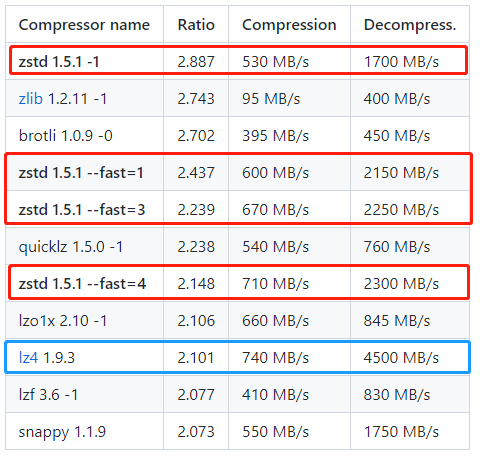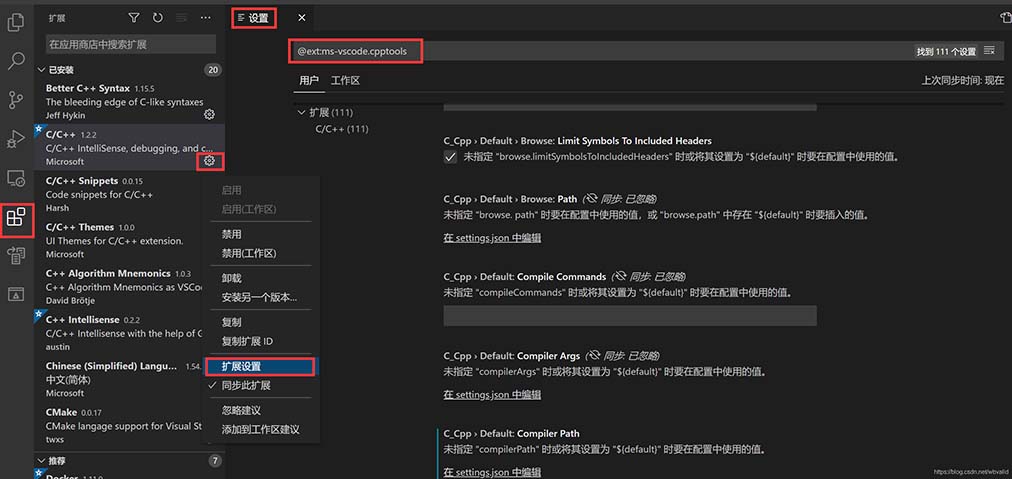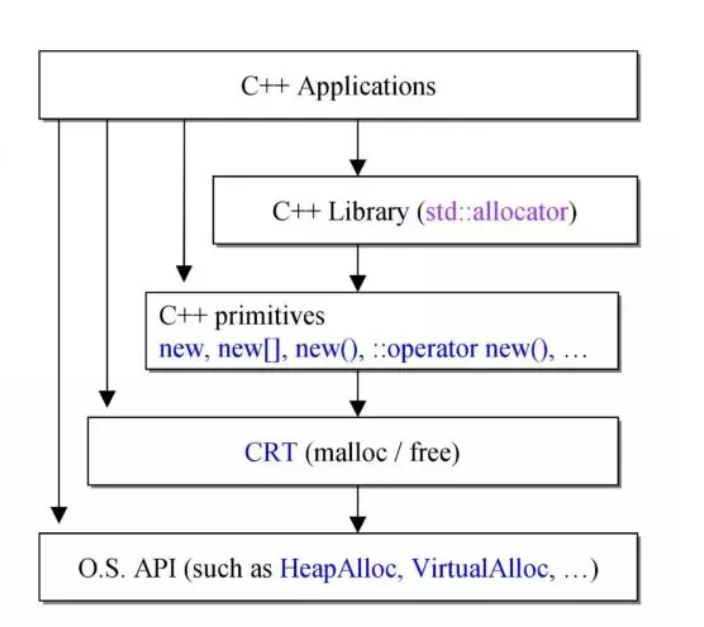C++的构造函数的作⽤:初始化类对象的数据成员。即类的对象被创建的时候,编译系统对该对象分配内存空间,并⾃动调⽤构造函数,完成类成员的初始化。构造函数的特点:以类名作为函数名,⽆返回类型
提问:假设只有一个构造方法,如果将之私有化会有什么后果
- 对于当前类,它是无法实例化的
- 对于它的子类,子类也是无法实例化的
构造函数与是否能够实例化有关
对于单个类
正常情况下
#include <iostream>
using namespace std;
class EventDispatcher {
public:
void test_printf(){
std::cout << "test_printf --\r\n";
}
EventDispatcher() = default;
};
int main(int argc,char *argv[]){
EventDispatcher noticeCenter1;
EventDispatcher *noticeCenter2 = new EventDispatcher;
noticeCenter1.test_printf();
noticeCenter2->test_printf();
}

构造函数私有化
#include <iostream>
using namespace std;
class EventDispatcher {
public:
void test_printf(){
std::cout << "test_printf --\r\n";
}
private:
EventDispatcher() = default;
};
int main(int argc,char *argv[]){
EventDispatcher noticeCenter1;
EventDispatcher *noticeCenter2 = new EventDispatcher;
noticeCenter1.test_printf();
noticeCenter2->test_printf();
}
编译通不过,因为无论是在栈还是堆上,都无法调用构造函数来生成对象

私有化与继承
正常情况下
#include <iostream>
using namespace std;
class EventDispatcher {
public:
void test_printf(){
std::cout << "test_printf --\r\n";
}
EventDispatcher() = default;
};
class NoticeCenter : public EventDispatcher{
public:
void test_Center(){
std::cout << "test_Center --\r\n";
}
};
int main(int argc,char *argv[]){
NoticeCenter noticeCenter1;
NoticeCenter *noticeCenter2 = new NoticeCenter;
noticeCenter1.test_printf();
noticeCenter2->test_printf();
noticeCenter1.test_Center();
noticeCenter2->test_Center();
}
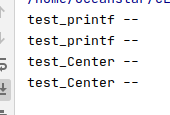
2. 父类构造函数私有化,而且子类没有提供public的构造函数----》 子类的构造函数也是私有化的
#include <iostream>
using namespace std;
class EventDispatcher {
public:
void test_printf(){
std::cout << "test_printf --\r\n";
}
private:
EventDispatcher() = default;
};
class NoticeCenter : public EventDispatcher{
public:
void test_Center(){
std::cout << "test_Center --\r\n";
}
};
int main(int argc,char *argv[]){
NoticeCenter noticeCenter1;
NoticeCenter *noticeCenter2 = new NoticeCenter;
noticeCenter1.test_printf();
noticeCenter2->test_printf();
noticeCenter1.test_Center();
noticeCenter2->test_Center();
}
父类构造函数私有化,而且子类提供public的构造函数----》编译还是不能通过
#include <iostream>
using namespace std;
class EventDispatcher {
public:
void test_printf(){
std::cout << "test_printf --\r\n";
}
private:
EventDispatcher() = default;
};
class NoticeCenter : public EventDispatcher{
public:
void test_Center(){
std::cout << "test_Center --\r\n";
}
public:
NoticeCenter() = default; //没有作用
//此时子类无法提供除了默认构造函数之外的函数,比如 NoticeCenter(int a)
};
int main(int argc,char *argv[]){
NoticeCenter noticeCenter1;
NoticeCenter *noticeCenter2 = new NoticeCenter;
noticeCenter1.test_printf();
noticeCenter2->test_printf();
noticeCenter1.test_Center();
noticeCenter2->test_Center();
}

结论:只要继承了一个无法实例化的父类,不管子类怎么折腾,都无法实例化。 这也是noncopyable类的由来
成员变量与私有化
正常情况下
#include <iostream>
using namespace std;
class EventDispatcher {
public:
void test_printf(){
std::cout << "test_printf --\r\n";
}
EventDispatcher() = default;
};
class NoticeCenter {
public:
void test_Center(){
a.test_printf();
std::cout << "test_Center --\r\n";
}
EventDispatcher a;
};
int main(int argc,char *argv[]){
NoticeCenter noticeCenter1;
NoticeCenter *noticeCenter2 = new NoticeCenter;
noticeCenter1.test_Center();
noticeCenter2->test_Center();
}
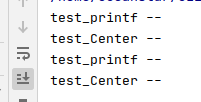
2. 如果当前类的某个成员变量是无法实例化的,那么当前类也无法实例化(正常,某个组件无法实例化,那么整个构建就会出问题)
#include <iostream>
using namespace std;
class EventDispatcher {
public:
void test_printf(){
std::cout << "test_printf --\r\n";
}
private:
EventDispatcher() = default;
};
class NoticeCenter {
public:
void test_Center(){
std::cout << "test_Center --\r\n";
a.test_printf();
}
EventDispatcher a;
};
int main(int argc,char *argv[]){
NoticeCenter noticeCenter1;
NoticeCenter *noticeCenter2 = new NoticeCenter;
noticeCenter1.test_Center();
noticeCenter2->test_Center();
}

解决方法:友元类可以访问某个类的私有成员,所以将令构件为某个组件的友元类,这样构件就可以去访问组件私有的构造函数,将之构造出来了
#include <iostream>
using namespace std;
class EventDispatcher {
friend class NoticeCenter ;
public:
void test_printf(){
std::cout << "test_printf --\r\n";
}
private:
EventDispatcher() = default;
};
class NoticeCenter {
public:
void test_Center(){
std::cout << "test_Center --\r\n";
a.test_printf();
}
EventDispatcher a;
};
int main(int argc,char *argv[]){
NoticeCenter noticeCenter1;
NoticeCenter *noticeCenter2 = new NoticeCenter;
noticeCenter1.test_Center();
noticeCenter2->test_Center();
}
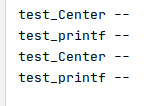
到此这篇关于C语言探索构造函数私有化会产生什么结果的文章就介绍到这了,更多相关C语言构造函数私有化内容请搜索编程学习网以前的文章希望大家以后多多支持编程学习网!
本文标题为:C++探索构造函数私有化会产生什么结果


基础教程推荐
- C语言数组长度的计算方法实例总结(sizeof与strlen) 2023-04-26
- Qt数据库应用之实现通用数据库请求 2023-03-18
- character-encoding – Linux中最常见的C语言编码(和Unix?) 2023-11-21
- 利用QT设计秒表功能 2023-05-30
- g++: const 丢弃限定符 2022-10-07
- 05-C语言进阶——动态内存管理 2023-11-20
- C语言的三种条件判断语句你都了解吗 2023-03-05
- VisualStudio2010安装教程 2023-01-05
- C语言植物大战数据结构二叉树递归 2023-04-09
- 纯C++代码详解二叉树相关操作 2023-05-15









